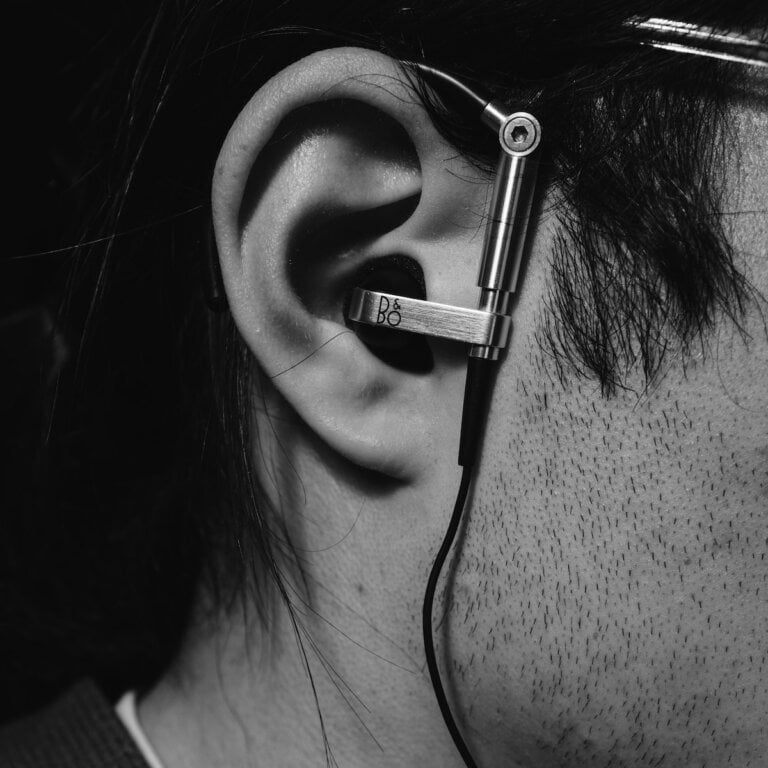Guarding Against Infection: Strategies for Preventing Ear Infections
Ear infections, also known as otitis media, can be a common and uncomfortable problem, especially among children. These infections occur when the middle ear becomes inflamed and infected, causing pain, hearing difficulties, and even temporary hearing loss. To prevent ear infections and safeguard your overall ear health, it is essential to adopt certain strategies. In this article, we will explore various preventive measures and practices that can help protect against ear infections.
Maintaining Good Hygiene Practices
Maintaining good hygiene practices is crucial in preventing the spread of infections and reducing the risk of ear infections. Here are some strategies to consider:
-
Regular Handwashing: Washing your hands frequently with soap and water is one of the most effective ways to prevent the transfer of germs. By keeping your hands clean, you minimize the chances of introducing bacteria or viruses to your ears or spreading them from person to person.
-
Avoid Sharing Personal Items: Sharing personal items like earphones, headphones, or earbuds can increase the risk of infection transmission. These items can harbor bacteria or viruses, which can enter the ears and cause infections. It is best to refrain from sharing such items to minimize the chances of contamination.
-
Keep Earbuds Clean: If you regularly use earbuds, it is essential to keep them clean and free from bacteria. Wipe them with alcohol wipes or disinfectant regularly to prevent the accumulation of dirt and germs. This practice helps reduce the risk of introducing harmful microorganisms into your ears.
By following these hygiene practices, you can minimize the risk of infection and promote better ear health.
Promoting a Healthy Environment
Creating a healthy environment is another essential aspect of preventing ear infections. Here are some strategies to promote a healthy environment:
-
Vaccination: Staying up to date with vaccinations, especially for diseases like influenza, measles, and pneumonia, can help prevent infections that may eventually lead to ear infections. Vaccines stimulate the immune system and provide protection against various pathogens. Consult with your healthcare provider to ensure you and your children are adequately vaccinated.
-
Smoke-Free Environment: Exposure to secondhand smoke can increase the likelihood of developing ear infections. The chemicals present in cigarette smoke can irritate the delicate tissues of the ear and impair the body’s natural defense mechanisms. It is crucial to maintain a smoke-free environment, especially around children, as their delicate ears are more susceptible to infections.
-
Maintain Clean Air: Poor indoor air quality can contribute to respiratory issues, including ear infections. Ensure proper ventilation in your living space to reduce the concentration of airborne pathogens. Consider using air purifiers to filter out pollutants and allergens that may trigger infections. Regular cleaning and dusting can also help maintain a clean environment.
By promoting a healthy environment, you can reduce the exposure to potential infection-causing agents and support better ear health.
Promoting Ear Health
Taking care of your ears is vital in preventing ear infections. Here are some strategies to promote ear health:
-
Avoid Excessive Moisture: Moisture in the ears can create an ideal environment for bacterial growth. After swimming or taking a shower, make sure to dry your ears gently with a clean towel or use a hairdryer on the lowest setting, holding it at least a foot away from your ear. Tilt your head to allow excess water to drain out. By keeping your ears dry, you minimize the risk of bacterial or fungal infections.
-
Prevent Water from Entering the Ears: While swimming or bathing, you can use earplugs or custom-fitted swim molds to prevent water from entering your ears. This helps reduce the risk of developing swimmer’s ear, an infection that affects the outer ear. Additionally, gently tilting your head from side to side can help drain any water that may have entered the ears.
-
Avoid Inserting Objects in Your Ears: It is important to avoid inserting cotton swabs, bobby pins, or any other objects into your ears. These items can push earwax deeper into the ear canal, potentially leading to blockages or damage to the delicate tissues. Earwax serves as a protective barrier, and removing it with objects can disrupt the natural defense mechanisms of the ear.
By following these practices, you can maintain optimal ear health and reduce the risk of ear infections.
Promoting a Healthy Lifestyle
Adopting a healthy lifestyle can have a positive impact on your overall well-being, including your ear health. Here are some strategies to consider:
-
Breastfeeding: Breastfeeding infants for the first six months can help boost their immune system, reducing the risk of infections, including ear infections. Breast milk contains antibodies that provide essential protection against various pathogens. If possible, aim to breastfeed your baby exclusively for the recommended duration.
-
Balanced Diet: A healthy, balanced diet rich in vitamins and minerals strengthens the immune system and promotes overall well-being, including ear health. Include a variety of fruits, vegetables, whole grains, lean proteins, and dairy products in your diet. These foods provide essential nutrients that support the body’s defense mechanisms against infections.
-
Encourage Good Sleep: Sufficient sleep plays a vital role in maintaining a robust immune system. Lack of sleep can weaken the body’s defenses, making it more susceptible to infections, including ear infections. Ensure that you and your children get enough restorative sleep to support a healthy immune system.
By maintaining a healthy lifestyle, you can enhance your body’s ability to fight off infections, including ear infections.
Remember, prevention is always better than cure. By implementing these strategies, you can significantly reduce the risk of developing ear infections and promote better ear health. It is important to consult with healthcare professionals for personalized advice and guidance. Take proactive steps to protect your ears and enjoy a healthy life.
Note: This article is provided in Markdown format as requested.
- Mayo Clinic. (2021). Ear infection (middle ear). Retrieved from https://www.mayoclinic.org/diseases-conditions/ear-infections/symptoms-causes/syc-20351616
- Centers for Disease Control and Prevention. (2021). Ear Infections. Retrieved from https://www.cdc.gov/antibiotic-use/community/for-patients/common-illnesses/ear-infection.html
- American Academy of Pediatrics. (2018). Otitis Media (Ear Infections). Retrieved from https://www.healthychildren.org/English/health-issues/conditions/ear-nose-throat/Pages/Otitis-Media-Ear-Infections.aspx
FAQs
- What are some strategies for maintaining good hygiene practices to prevent ear infections?
- Regular handwashing with soap and water
- Avoiding sharing personal items like earphones or earbuds
- Keeping earbuds clean by wiping them with alcohol wipes or disinfectant
- How can I promote a healthy environment to prevent ear infections?
- Staying up to date with vaccinations
- Maintaining a smoke-free environment
- Ensuring clean air through proper ventilation and use of air purifiers
- What strategies can I follow to promote ear health and prevent ear infections?
- Avoiding excessive moisture in the ears
- Preventing water from entering the ears while swimming or bathing
- Avoiding inserting objects like cotton swabs into the ears
- How does a healthy lifestyle contribute to preventing ear infections?
- Breastfeeding infants for the first six months
- Following a balanced diet rich in vitamins and minerals
- Getting sufficient sleep to support a healthy immune system







